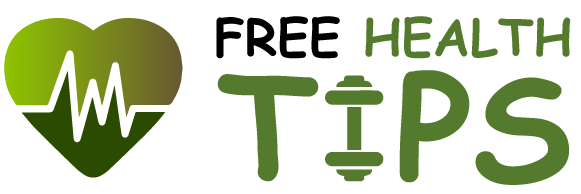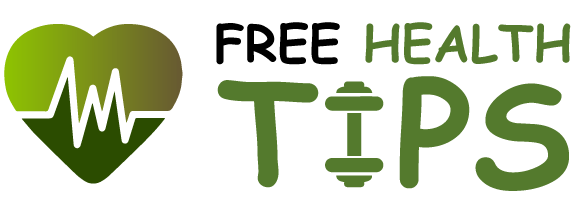Teenage years can often be tumultuous, often marked by an emotional amygdala and changing hormones. This period of transition calls for extreme love and support.
It is not uncommon to find teenagers suffering from conditions like depression, anxiety, body image issues, and eating disorders. Studies have shown that at least 11.5% of America’s youth suffer from severe depression. That would come to a total of 2.7 million teenagers!
Sometimes, multiple mental health conditions may contribute to a teen’s poor overall well-being. However, one condition that is presently on the rise is eating disorders. This can be a serious condition, affecting a teen’s eating behaviors. As a parent, it can be terrifying to discover that your teenager is suffering from this condition.
Fret not; this article will discuss eating disorders and recommend solid tips to help your teen overcome this issue.
Eating Disorder Cases Rise Among Teens
According to Healthline, eating disorder is an umbrella term for different kinds of conditions. In some cases, the teenagers may starve themselves (as in the case of anorexia). In others, they may compulsively binge on food (as in the case of binge eating).
Other types of this condition include pica (eating items that are not considered food), rumination disorder (regurgitating food), and avoidant food intake disorder (a lack of interest in certain foods). Sadly, eating disorder cases in general have escalated among teenagers (more than two times as compared to pre-pandemic times).
It can be difficult to understand the psychology that drives such conditions. After all, why would someone want to starve or stuff themselves with food? Moreover, why would someone want to consume non-food items?
As per Psychology Today, some of the common reasons behind eating disorders include –
- Anxiety or depression
- Lack of control in life
- Feelings of inadequacy or low self-esteem
- Troubled family life or interpersonal relationships
- A history of being bullied or teased
- Sexual abuse
- Loneliness
- Difficulty in expressing emotions properly
- Other cultural factors like media glorification of thinness may also contribute.
Ways You Can Help Your Teen Recover
Now that we’ve discussed the causes, it’s equally important to list the possible solutions. If your teen has been diagnosed with any of the eating mentioned above disorders, take heart. You can help them overcome this problem. Given below are three useful tips.
Identify the Signs
You can help kickstart the recovery process by making your teen feel seen and heard. Given the wide spectrum of these disorders, it can be difficult to spot the early signs. These may include –
- Obsessive behaviors like counting calories
- Fast and unexplained weight loss
- Strict dietary rules
- Constantly obsessing over nutritional contents
- Preoccupation with one’s body size and shape
- Irritability or mood swings that accompany the other signs
- Secret binging or skipping meals secretly
- Depression, social withdrawal, and anxiety
- Abusing laxatives
- Shame over ‘unhealthy or imperfect’ eating
- Rushing to the bathroom directly after meals
- Emotional breakdown or shutdown
If your teen is not yet diagnosed and you notice any of these signs (in a pattern), speak to them. Show care and concern so that they feel safe to open up. Acknowledge and validate their struggle and share your concerns.
Consider Professional Support
This tip stems directly from the one above. As you share your concerns with your teen, gently nudge them to seek professional help. This can be a sensitive topic to discuss so proceed with caution. Only bring it up after your teen is convinced that they have a problem and need help.
For conditions like anorexia nervosa and bulimia, early treatment is crucial to avoiding other complications like osteoporosis, kidney failure, heart issues, etc. Both healthcare providers and nursing professionals can provide a diagnosis and intervention plan.
Nurses can even stay with your teen until positive behavioral changes and weight restoration or stabilization have taken place. These professionals complete an offline or online RN-MSN degree program, which equips them to care for teen patients suffering from electrolyte imbalance, malnutrition, and heart arrhythmias.
Wilkes University states that nurses can extend patient care not only at home but also in complex healthcare environments. They will even support the teen’s family members in providing the care needed to recover. Some priorities in nursing intervention would include –
- Restoring healthy eating patterns via nutritional support
- Offering individual therapy to tackle psychological factors
- Managing co-occurring conditions like anxiety and depression
- Involving and educating family members and caregivers about the complications, treatments, etc.
Discover Skills & Tools to Support Recovery
As the teen’s parent, you and other family members must discover tools and skills to support their recovery. It is best to consult with the teen’s healthcare team first. Some broad tips in this regard include –
- Encourage your teenager to have a routine for meals and snacks.
- Invite them to join you in planning and preparing snacks or meals.
- Create a definite structure around the meal times, like having consistent meal portions.
- Encourage your teen to consume foods from different groups – fruits, vegetables, grains, etc.
- Refrain from commenting on your teen’s appearance or weight, especially during meal hours.
- Address any disruptive eating behaviors politely and calmly.
- Promote a positive body image by reminding them of what their body is capable of doing (instead of just looking).
- Set realistic progress goals. You can get professional help for this.
Finally, you mustn’t neglect self-care in the midst of supporting your teen. After all, it is not possible to pour from an empty cup. Since the road to recovery can be long and trying, it may leave you physically or emotionally exhausted at times.
As you show patience to your teen, don’t forget to be kind to yourself. Get plenty of rest, eat healthy, and exercise regularly. Furthermore, professional help is not just for your teen but also for yourself. If needed, attend support groups and seek the help of trusted people (you are not alone!).


